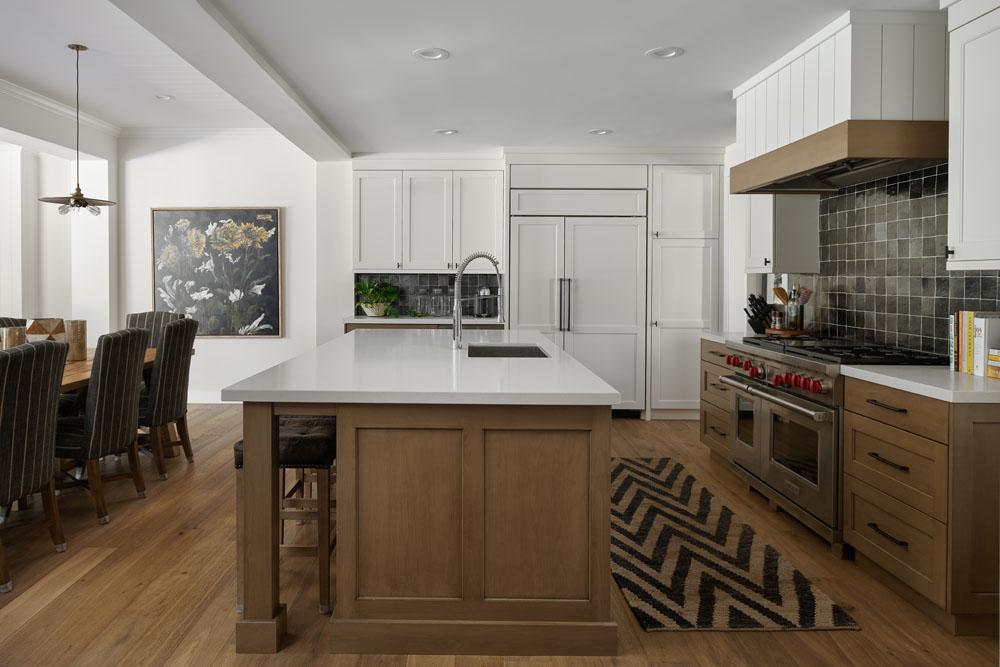So, you’ve finally decided to go for that long-anticipated makeover. Everything seems ready: the blueprints are drafted, the Pinterest boards are brimming with inspiration, and the excitement is palpable. Yet, before the first swing of the hammer, you have to deal with one make-it-or-break-it decision and choose the right home remodel contractor.
There is something peculiar about this step. Too often, it gets overshadowed by the glamour of decor and design, and many homeowners face the same mistake: they do not pay enough attention. Yes, some websites look fabulously professional and make you feel you can trust the contractor without question. But is that really so? Yes and no.
The right decision requires not just enthusiasm but astute judgment as well. Read on.
Know What You Want
Before you even start your search for a contractor, try to have a vision as clear as possible about what you want. This means not just having a vague idea but a detailed plan.
Understand the scope of your project first. Are you looking to modernize your kitchen, add an extension to your house, or perhaps transform your basement into a livable space? Start by listing your goals, preferred materials, design inspiration, and non-negotiables.
Sketch out a rough blueprint or engage with an architect or designer to formalize your ideas. The more precise your plans are, the easier it will be to communicate your vision to potential contractors, ensuring they grasp not only the technicalities but also the aesthetic essence of your remodel.
Consider opting for a design-build contractor who can streamline aand shorten the process with all project phases under one roof.
Research the Market
Once you have a solid plan, dedicate time to do extensive research. Don’t rely on the internet alone; ask friends, family, and neighbors for recommendations. Personal referrals bear more weight than reviews online and often help pinpoint reliable contractors who have already proven their competence. Additionally, online platforms like Houzz, Angie’s List, and HomeAdvisor offer extensive databases of contractors complete with reviews and ratings. Use all those resources to get insights into a contractor’s reliability, work quality, and professionalism.
When perusing online reviews, approach them with a critical eye. Look for patterns in the feedback. Is there consistent praise for punctuality, craftsmanship, and communication, or are there recurrent complaints about delays and budget overruns? Filter through the data for a nuanced picture of potential candidates.
Ask the Right Questions
Have you already shortlisted a few contractors? OK, the next step is the interview process. This is your opportunity to gauge more than their expertise. It’s time to check out their compatibility with your project. Here are key questions to consider:
- Experience and Specialization: How long have you been in business? Have you completed similar projects?
- Licensing and Insurance: Are you licensed and insured? Can you provide proof?
- References: Can you provide a list of past clients I can contact?
- Timeline: What is your projected timeline for this project? How do you handle potential delays?
- Subcontractors: Will you be using subcontractors? If so, how do you vet them?
- Communication: How often will we communicate, and what is your preferred method of communication?
- Budget: Can you provide a detailed estimate? How do you handle unforeseen expenses?
Their responses should reveal their competence level as well as their transparency and willingness to collaborate.
Beware: A contractor who is reluctant to provide detailed answers or rushes through the interview might not be the best fit for a demanding project!
Verify Credentials and References
After the interviews, study the shortlisted contractors’ licenses. What you need to know is if those are valid and current. Check also with local authorities for any complaints or legal issues.
The steps above are strongly recommended. Now, if you wish to go more in-depth, contact the references provided. When speaking with past clients, ask about their overall satisfaction, the quality of work, adherence to budget and timeline, and how the contractor handled any issues that arose.
Consider visiting past project sites, if possible, as those can offer tangible, first-hand evidence of the contractor’s craftsmanship and attention to detail. Such an inspection can be more revealing than photos.
Set Up the Contract Like a Pro
You found a perfect candidate? Formalize your agreement through a detailed contract. You’ll want the document to clearly outline the scope of work, payment schedule, timeline, materials to be used, and any warranties. To put it in the list:
- Project Description: Defining as precisely as possible the work to be performed.
- Timeline: Start and completion dates, preferably with milestones (so you can keep more control over the project timeline and its realization).
- Payment Schedule: Breakdown of costs and payment due dates.
- Materials: Specifics on materials, including brands, types, and quality.
- Change Orders: Define the procedure for handling changes to the project.
- Warranties: Coverage for workmanship and materials—never overlook this segment; it’s for your own protection.
- Liability: Insurance coverage and liability for damages.
Both parties should sign the contract, and any changes should be documented in writing. This legal safeguard protects you against misunderstandings and provides a clear framework for the project.
Communication Is The Lifeline of Your Project
Establish a regular communication schedule with your contractor to stay in the loop about progress, issues, and any necessary decisions. It doesn’t matter what you opt for, whether through weekly meetings, emails, or phone calls; keep the updates consistent. It’s the way to preemptively address problems and prevent projects from going off track.
Being approachable and responsive will also encourage your contractor to be transparent. If they feel comfortable discussing issues, they’ll more likely keep you informed about potential delays or extra costs.
Manage Expectations—Be Moderately Flexible
Even with the most detailed planning and communication, challenges can occur at any time. From misconceptions to supply chain delays to unforeseen structural issues, home remodels are rife with potential pitfalls.
A wise approach can save you a lot of headache during the process. Stick to the original plan as much a possible, but also prepare yourself to be adaptable to the situation, prevent stress and allow for creative solutions.
Discussing contingency plans with your contractor at the outset can be quite beneficial in this case. Learn how they typically handle unforeseen circumstances, as that will give you a clearer idea of what to expect and how flexible they are in their approach.
The Final Inspection and Payment
As the project nears completion, conduct a thorough final inspection. Walk through the project with your contractor, checking whether all work meets your standards and adheres to the contract specifications. Make a list of any incomplete or unsatisfactory work, known as a punch list, and ensure these items are addressed before making the final payment.
A reputable contractor will understand the importance of this final inspection and work to resolve any issues. Once you are completely satisfied, release the final payment.
The Post-Project Relationship
Your relationship with your contractor doesn’t necessarily end with the completion of the project. If the job they did was good, establish a good rapport. Contractors appreciate returning clients and good referrals, so maintaining a positive relationship can be mutually advantageous and handy for your future needs, whether it’s minor touch-ups, additional projects, or simply advice.
Additionally, should any issues arise after the project’s completion, a good relationship ensures they are more likely to address them promptly. A contractor who values their reputation will stand by their work and ensure any problems are rectified.
How to Choose Your Home Remodel Contractor, Summed Up
When it comes to home remodeling, where every detail matters, the right contractor can transform your vision into reality. And as the dust settles and the final nail is driven, you’ll not only have a beautifully remodeled home but also the satisfaction of having navigated the process with wisdom.
Choosing the right contractor for your home remodel is an endeavor that demands diligence, patience, and foresight. If you aim to make the most of it, you should understand your project, conduct thorough research, ask the right questions, and maintain clear communication. Mutual respect and collaboration will ensure a seamless process and the best possible outcome.
For expert guidance and top-tier craftsmanship, trust the professionals with a reputation and choose a home remodel contractor such as Woodcrest. With years of experience and a commitment to excellence, we ensure your vision becomes reality. Contact us to start planning your dream renovation today!




